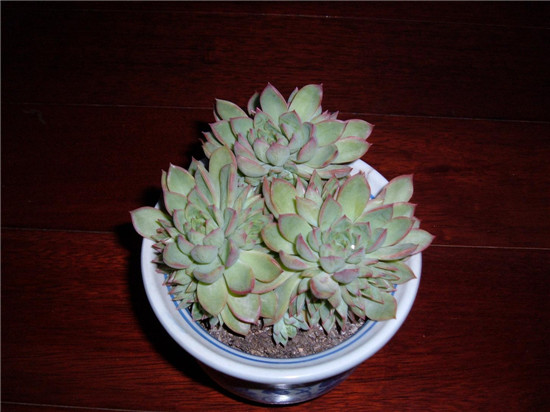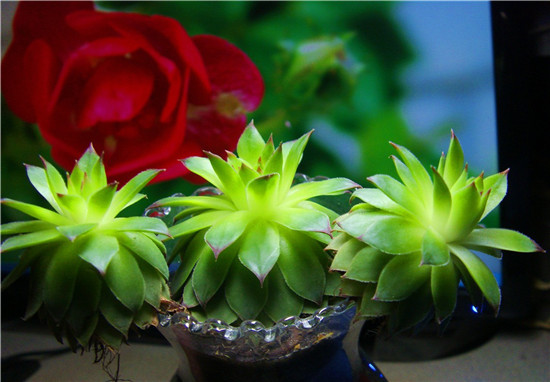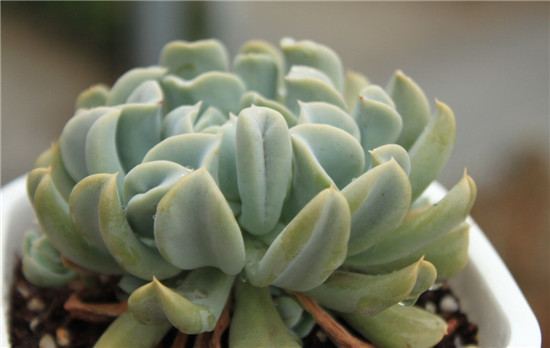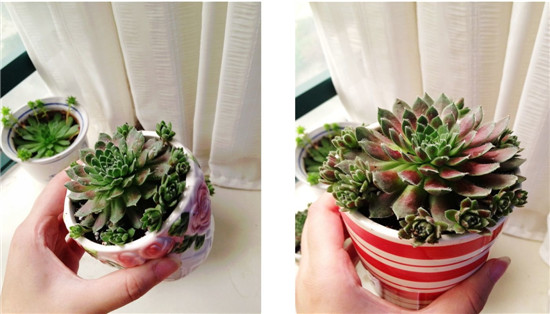How to plant crassulaceae Guanyinlian
Guanyinlian, also known as long-growing grass, Guanyin lotus and Buddha lotus, is a kind of perennial succulent plant of the genus Sedum. Many people are more concerned about the cultivation of crassulaceae Guanyinlian. Next, let's go and have a look.

Crassulaceae Guanyinlian, also known as long-growing grass, Guanyin lotus, Buddha lotus, is a small succulent plant dominated by ornamental leaves, and it is also one of the succulent plants with large sales recently. Its plant shape is dignified, like a blooming lotus, the leaf color is varied, and the purplish red leaf tip is very chic, which is suitable for small and medium-sized potted plants or combination potted plants. With different shapes of flowerpot planting, its ornamental effect is also very different, with cartoon flowerpot planting, lively and lovely, deeply welcomed by children; with purple sand pot or blue-and-white porcelain pot planting, dignified and generous, quite favored by the middle-aged and elderly; and planted in small wooden flowerpots, fashionable and natural, very popular with young people.

There are two kinds of plants called Guanyinlian, one is crassulaceae Guanyinlian, and the other is Guanyinlian of Araceae. These two kinds of Guanyinlian are poisonous and non-toxic, and Guanyinlian of crassulaceae is toxic.
Crassulaceae Guanyinlian is not poisonous, but if it is Araceae, it will be poisonous. In fact, there are many kinds of Guanyinlian bought by flower friends to watch at home. Guanyinlian is just a popular name for many kinds of plants. Generally speaking, it mainly belongs to crassulaceae and Araceae. Crassulaceae plants are non-toxic, but Araceae plants are basically poisonous.

Growth conditions of Sedum crassulaceae
The cultivation of crassulaceae plant Guanyinlian is easy to succeed. In the growing season, except for shade from June to September, half-day light should be given at other times. If you put it indoors, it should be placed near the south-facing window. After placing it indoors for 1 month, it should be moved to a wet place under the shed for maintenance for a period of time. To often water, keep the soil moist, but to prevent too much moisture or stagnant water in the basin, otherwise it will cause root rot. So usually in the basin, we should put a layer of coarse sand on the bottom of the basin as a drainage layer to strengthen the drainage function. When drying at high temperature, spray water to humidify it, so that it can get the external conditions of exuberant growth. Fertilize 2-3 times a month during the growing season. Watering should be reduced after entering the room in winter, and the temperature should not be lower than 5 ℃.

The Propagation method of Guanyinlian of Sedum
Leaf insertion: lay the complete mature leaves on the moist sand with the leaves facing up and back down, without covering the soil and placing them in a cool place. Leaflets and new roots can grow from the base of the leaves in about 10 days, and the roots can be buried in the soil. In the future, let it bask in the sun, properly water and fertilize, and it will gradually grow into a strong new plant.
Cuttings: single leaves, tillering branches or top branches can be used. The cuttings cut are unlimited in length, but after the cut is dry, remove the lower leaves and insert them into the sand bed. It usually takes about 20 days to take root after insertion. Insert soil should not be too wet, otherwise the cut is easy to yellow rot, the root length of 2-3 meters on the basin. It can also be inserted with blades.
Ramet: it is best to do it in spring. Cuttings are often used to breed. Indoor cuttings can be carried out in all seasons, especially from August to October, with fast rooting and high survival rate. Cuttings can be cut with single leaves, tillers or apical branches, and the length of the cuttings is unlimited, but the cut should be dried and then inserted into the sand bed. It usually takes about 20 days to take root after insertion.
The above is the whole content of how to plant crassulaceae Guanyinlian for you. I hope this article can help you. Please continue to follow us.
Related
- Wuhan Hospital Iron Tree Blooming Result Was Instantly Frightened by the Gardener Master
- Which variety of camellia is the most fragrant and best? Which one do you like best?
- What is the small blue coat, the breeding methods and matters needing attention of the succulent plant
- Dormancy time and maintenance management of succulent plants during dormancy
- Minas succulent how to raise, Minas succulent plant pictures
- What are the varieties of winter succulent plants
- How to raise succulent plants in twelve rolls? let's take a look at some experience of breeding twelve rolls.
- Attention should be paid to water control for succulent plants during dormant period (winter and summer)
- Watering experience of twelve rolls of succulent plants
- Techniques for fertilizing succulent plants. An article will let you know how to fertilize succulent plants.



